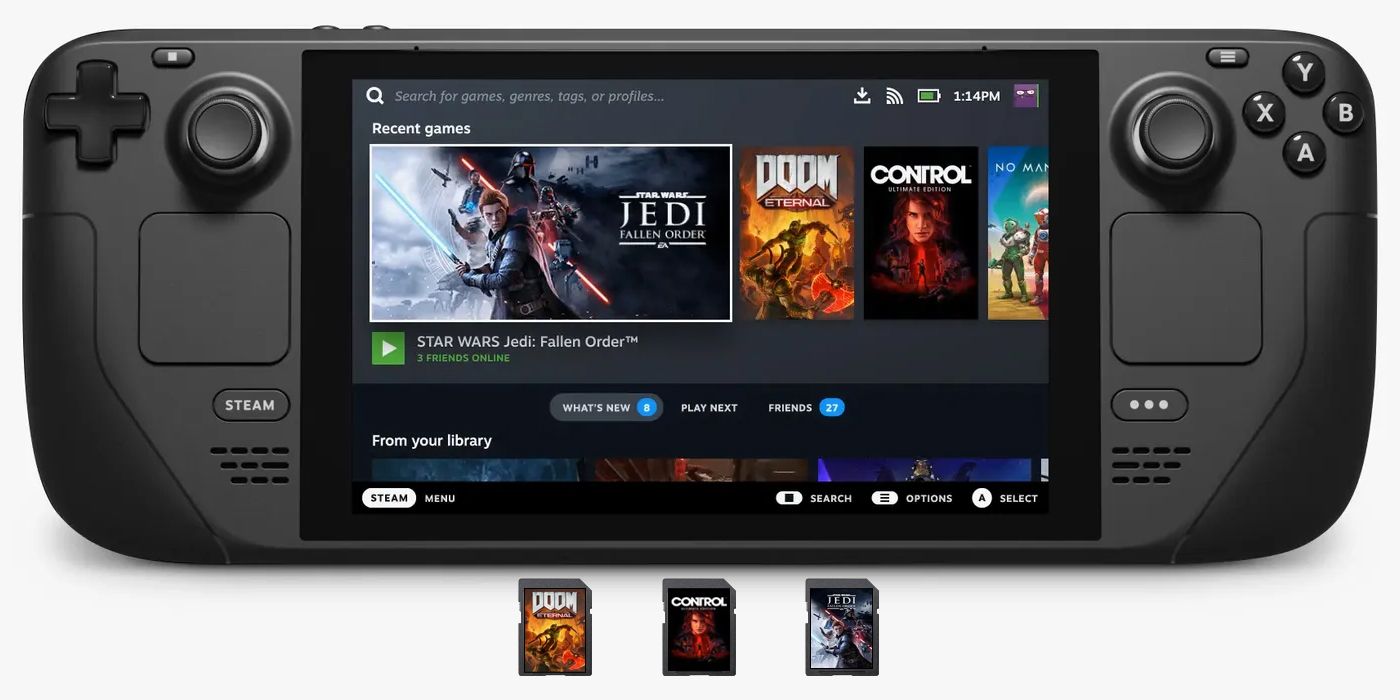
News of Valve's handheld gaming system, the Steam Deck, has been a point of excitement in the gaming world, with the announcement coming largely as a surprise to gamers. With Valve's description of the Steam Deck as a portable Steam library, many have had questions as to exactly what the means, and in what capacity the Steam Deck will attempt to emulate Valve's Steam platform. New information from Valve seems to indicate that the Steam Deck could offer more than simply reproducing a person's Steam library on the device, instead possibly offering support for cartridge-style gaming.
The Steam Deck is already offering impressive hardware, with the latest AMD CPU and GPU powering the handheld device as well as LPDDR5 memory, and a variety of different sizes of hard drive available day one. All of this hardware has meant that "everything that has been coming out this year has been running without issues" on the device, according to the Steam Deck's developers, and the device is being constructed in a manner that will likely futureproof it as hardware evolves.
RELATED: Valve Hasn't Found a Single Game That Won't Run on the Steam Deck
In an interview with IGN, Valve discussed the Steam Deck's capabilities, touching on its general hardware specs and comfortability. The Valve team took some time to discuss the concept of "dynamically removable steam libraries," noting that the developers have put in a lot of work to ensure that there is specific support for portable storage of games via SD cards. Currently SD cards can be used to increase the capacity of the Steam Deck, and with SD cards of up to 1TB being offered, the Steam Deck's potential storage capacity could be higher than its competitors'.
Interestingly, Valve noted the possibility of "opportunities to build more software...to get to a point where you can preload games on an SD card with a different device," indicating that it could be possible to play games directly off an SD card or comparable storage unit without needing to download the games from Steam. Currently, everything is handled by the device itself, with SD cards acting as an external hard drive for downloaded games and players needing to install the games for them to run efficiently, with the developers noting some slight differences in performance when running games directly from the SD card. However, as specs for the Steam Deck have already changed once, it's possible they could be updated again.
If players could utilize preloaded games on SD cards, then the Steam Deck could function like other handhelds, with a more plug-and-play feel to the device. There could be potential for physical media releases that function with the Steam Deck specifically, perhaps avoiding some of the performance issues associated with playing games directly from the SD card. In any case, Valve seems to be satisfied with the Steam Deck's performance, and with its bevvy of features seemingly casting a shadow over the Nintendo Switch OLED, gamers are ready to see what the Steam Deck can do.
The Steam Deck will release in December of this year.
MORE: Steam Deck With Xbox Game Pass Would be a Game Changer

